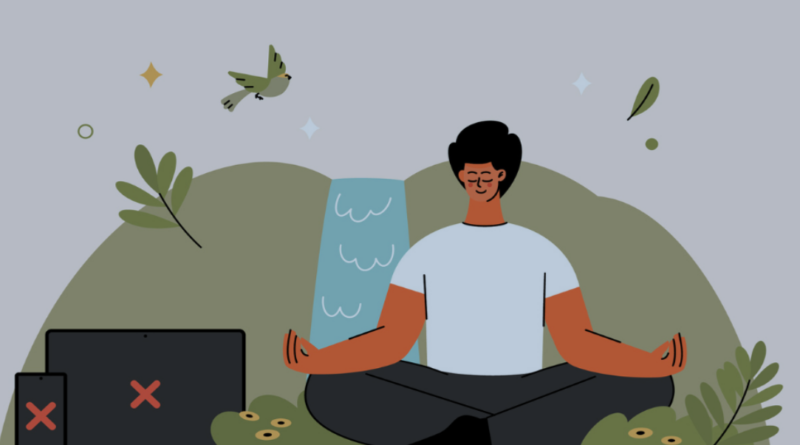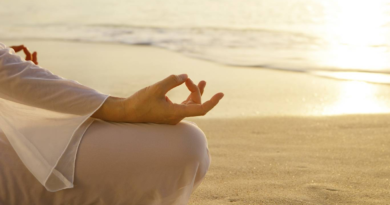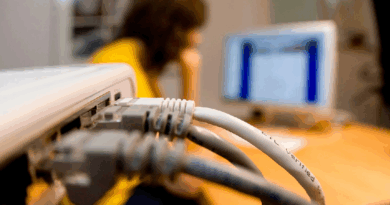Digital Detox Retreats: Your Path to Clearer Thinking and Less Stress
Have you ever felt like your phone was glued to your hand, even when you wanted a break from notifications, messages, or endless scrolling? Are you curious about what might happen if you spent a few days away from digital devices altogether? If you answered yes to either question, then you’re in the right place. This article explores the benefits of digital detox retreats for mental clarity and stress reduction, offering a unique, in-depth look at why they matter and how they can transform your well-being.
Below, you’ll find specific, practical information on digital detox retreats. We’ll talk about how these experiences can sharpen your mind, lower your stress, and change your relationship with technology. We’ll also discuss how to choose the right retreat, common pitfalls to watch out for, and ideas on sustaining the benefits long after you return to everyday life. Let’s dive in.
Table of Contents
1. Why Digital Detox Retreats Matter
You likely use your phone for far more than calls. It’s a camera, a notepad, a to-do list, a portable gaming console, and a gateway to endless information. But have you ever stopped to think about the cumulative impact of constant digital stimulation on your mental and physical well-being?
Many of us get so used to our digital habits that we barely notice how much time we spend on screens. According to a data report by the Pew Research Center (2019), the average adult in the United States checks their phone nearly 96 times a day. It sounds high, but once you begin to count every quick glance, it makes sense, right?
A digital detox retreat is a short-term experience (often spanning a weekend or a full week) that requires participants to disconnect from smartphones, social media, laptops, and sometimes even televisions. These retreats are often set in peaceful, natural locations. You might be wondering: Why would anyone sign up to give up their devices voluntarily? The motivation usually comes down to feeling overwhelmed, anxious, or simply curious about living without the digital noise we’ve come to rely on.
While social media and digital tools have many benefits, unlimited access to them can lead to excessive mental clutter. Think about how many times you’ve felt stressed or anxious because of an online comment or an email notification. Digital detox retreats aim to reduce those triggers by eliminating or drastically limiting screen use. In doing so, they offer a chance to reset your mind and body.
2. Key Benefits for Mental Clarity
A Break from Digital Overload
One of the biggest gains from a digital detox retreat is the chance to breathe—mentally speaking. By stepping away from the endless cycle of newsfeeds, pings, and messages, your mind gets space to rest. During a retreat, you’ll likely notice your thoughts becoming less cluttered and more focused. Those who’ve attended digital detox programs often describe feeling like they “powered down” mental chatter.
Improved Focus and Mindfulness
Have you ever tried to read a book or finish a task only to be interrupted by a beep from your phone? That tiny interruption can derail your train of thought. Over time, these small distractions add up, reducing our overall ability to concentrate. A digital detox retreat forces you to re-learn how to pay attention for more extended periods. You might find that you can read for hours or sit in stillness without impatience. It’s like exercising a muscle you never knew you were neglecting.
Reconnecting with the Present Moment
Without the option to post every highlight or check for likes, you learn to engage more fully with what’s happening around you. Every conversation, every meal, and every outdoor walk can feel more meaningful. Some participants note that they discover how much they’ve been missing in their own immediate environment—whether it’s the feel of sunlight on their face or the taste of food savored without a background scroll.
Enhanced Creativity
Have you ever felt like you had your best ideas in the shower or while taking a walk? That’s partly because stepping away from screens can spark creative thinking. By the time your retreat ends, you might find your mind brimming with fresh ideas. Some experts, like Dr. Sherry Turkle of the Massachusetts Institute of Technology, suggest that uninterrupted solitude is essential for self-reflection, which in turn fosters creativity (Turkle, 2015).
3. Stress Reduction: How and Why It Works
The Cortisol Connection
Cortisol is often called the “stress hormone.” When you’re always plugged in, your body might release more of it than it needs to. Getting an email late at night or scrolling through upsetting news can signal your body to stay alert, even when you’re supposed to be resting. A digital detox retreat interrupts that cycle. A study published in Psychosomatic Medicine (2018) found that even short-term breaks from digital devices can lower cortisol levels in participants (Smith & Goodwin, 2018).
Better Sleep Quality
Good sleep is vital for mental clarity and emotional balance, but screens interfere with that, too. According to the National Sleep Foundation, the blue light emitted by phones and tablets tricks the brain into thinking it’s daytime, making it hard to wind down at night (National Sleep Foundation, 2019). At a digital detox retreat, you won’t be staring at a screen before bed. Instead, you’ll have natural cues—like the sunset—to tell your body it’s time to rest, leading to deeper, more restorative sleep.
Reduced Anxiety and Depression
Social media can sometimes make us feel anxious or low, especially if we’re comparing our lives to carefully curated online posts. During a digital detox, you remove that comparison trap. A 2019 study from the University of Pennsylvania found that limiting social media usage reduced feelings of loneliness and depression (Hunt, Marx, Lipson, & Young, 2018). In a retreat setting, you don’t just reduce social media; you eliminate it altogether, at least for the duration of your stay. This can translate into a noticeable decrease in anxiety and negative thinking.
4. Surprising Effects on Body and Mind
Impact on Physical Health
When you’re less distracted by your phone, you tend to move more. Participants in digital detox retreats often report walking or hiking regularly, joining yoga or fitness sessions, and simply feeling more attuned to their bodies. Movement and nature are well-known stress busters. According to the American Heart Association, adding just 30 minutes of moderate exercise daily can help improve cardiovascular health (American Heart Association, 2019).
Improved Social Connections
Without a phone screen to steal your attention, face-to-face interactions become richer. You’ll likely have the opportunity to chat with fellow retreat-goers without the usual digital interruptions. This can lead to genuine friendships or meaningful conversations that you might not otherwise have. Some retreat participants liken it to the feeling of going to summer camp as a kid—complete with close bonds formed over shared activities.
Boosted Self-Confidence
Stepping away from constant notifications can also build your sense of independence. You realize that you can navigate life—at least for a few days—without checking your phone every few minutes. When you return to your normal routine, you might notice increased confidence in your ability to handle stress. After all, you survived without instant digital reassurance, right?
A Fresh Perspective on Time
Have you ever asked yourself, Where did all the time go today? Without scrolling breaks or social media rabbit holes, your day at a digital detox retreat can feel surprisingly long—in a good way. You get a new perspective on how much time you truly have for quiet hobbies, in-person conversations, or simple rest.
5. Choosing the Right Digital Detox Retreat
If you’re excited about the idea of a retreat but unsure how to pick one, it can help to ask a few essential questions. What environment do you find most soothing? Do you like mountains, beaches, forests, or perhaps desert landscapes? Does the retreat offer structured activities like guided meditation, yoga, or group discussions? Or is it more self-guided and free-flow?
Location and Setting
Some retreats are nestled in remote areas, offering minimal contact with the outside world. Others are closer to towns or cities but emphasize strict no-device rules. Think about how “off the grid” you want to be. If you’re new to these retreats, you might prefer a location that feels safe and comfortable but still offers enough solitude to disconnect.
Retreat Philosophy
Each retreat has its own vibe. Some focus on meditation and mindfulness, others on creative exploration or physical adventure. Look for a retreat that aligns with your personal goals. Do you want to focus primarily on stress relief? Are you more interested in boosting your creativity? Choose a program that resonates with what you hope to achieve.
Duration
Digital detox retreats can last anywhere from a weekend to several weeks. If you’re feeling anxious about unplugging, try a shorter program first. If you already know you need a significant reset, consider a longer retreat for deeper benefits.
Cost and Accessibility
Prices vary widely. Some are luxury getaways with spa treatments, while others are more rustic and community-oriented. Set a realistic budget and see which options fit. Keep in mind that you’ll likely have fewer travel expenses if you choose a retreat closer to home. Also, consider the physical requirements—if the retreat includes daily hikes, can you handle that, or is there an alternative option?
6. Preparation Tips for a Rewarding Experience
Let Your Circle Know
It’s a good idea to inform family, friends, or coworkers that you’ll be offline. If you have work responsibilities, set up an “out of office” email response. This not only prevents people from worrying, but it also frees you from feeling guilty about not replying.
Ease Into It
One approach is to start reducing screen time a week or two before your retreat. Set a limit on your social media usage or stop checking emails after certain hours. Easing into fewer digital interactions can make the abrupt withdrawal at the retreat less jarring.
Set Goals
Ask yourself, What do I hope to gain from this experience? Maybe it’s better sleep, reduced stress, more creativity, or improved social connections. Write down a few objectives so you can reflect on them later. Having clear goals gives your retreat purpose and keeps you motivated when you face the itch to check your phone.
Pack the Essentials
If the retreat is in a natural setting, bring comfortable clothes, good walking shoes, and any personal items you might need. Because you won’t be glued to your phone, you might want a physical journal or sketchbook to jot down insights. Consider bringing a favorite book for leisure reading, too.
7. What to Expect During a Digital Detox
Upon arrival, most retreats will collect your phone or request that you switch it off for the entire stay. This might feel strange at first—like you’re suddenly disconnected from everyone and everything. You’ll spend your days engaging in various activities designed to help you unwind and reconnect with the present.
Mindful Mornings
Expect to wake up with the sun or at least at a time that aligns with natural rhythms. Many retreats start the day with gentle stretches, meditation, or quiet reflection before breakfast. It might feel refreshing to begin your day slowly instead of scrolling through your phone the moment you open your eyes.
Group Workshops and Activities
Some digital detox retreats host workshops on stress management, mindfulness, or creativity. You might have the chance to learn calming breathing techniques, try journaling exercises, or practice yoga. These sessions often encourage open dialogue, and everyone is in the same boat—nobody’s reaching for their phone during a conversation.
Quiet Spaces and Free Time
In many programs, afternoons feature free time for reading, hiking, or simply daydreaming. Without the distraction of screens, you might appreciate just “being” in a serene environment. If silence makes you uneasy at first, don’t worry. It’s normal to experience a little restlessness. After a day or two, most participants find they settle into a calmer rhythm.
Evening Reflection
Nights can bring group dinners, guided discussions, or stargazing. Since there’s no TV, you might hear crickets or the sound of nearby water instead. This shift in sensory input can make you feel deeply relaxed. You may also have vivid dreams as your mind processes the day without digital interference.
8. Overcoming Withdrawal and Anxiety
What happens when you suddenly remove something that’s been a major part of your routine? You might initially feel a sense of withdrawal. Some participants describe “phantom ring syndrome,” where they think they hear a phone ring or feel a vibration in their pocket.
Acknowledge the Discomfort
It’s normal to feel on edge at first. After all, we’re programmed to check our phones for updates. Notice these feelings without judging yourself. Understand that discomfort usually fades after the first or second day.
Focus on the Present Task
Whenever you feel the urge to check your phone, distract yourself by focusing on something else in the moment. Maybe it’s a conversation, the flavor of your tea, or the sensation of walking on grass. Grounding techniques can help you stay present.
Talk It Through
Retreat facilitators are used to participants feeling uneasy. If you’re struggling, speak up. You might find that others feel the same way. Sharing these experiences can ease anxiety and make you realize you’re not alone in missing your devices.
9. Carrying the Benefits Home
One of the biggest challenges is maintaining the retreat’s positive effects after you return to everyday life. You can’t stay at a digital detox retreat forever, right? So how do you keep your mind clear and your stress low?
Set Boundaries
Decide on specific rules for yourself, such as no screens during meals or no phone use an hour before bedtime. According to the National Institutes of Health, setting technology boundaries at home can reinforce healthier mental habits (NIH, 2020).
Use Technology Mindfully
Being “back online” doesn’t mean you have to fall into old patterns. Uninstall unnecessary apps, turn off non-essential notifications, or schedule “phone-free” blocks of time each day. If social media is a major stressor, consider limiting your daily usage to a set number of minutes.
Regular Mini Detoxes
You don’t need an official retreat every month, but short, self-imposed digital breaks can help. For instance, some people choose a “digital Sabbath,” turning off devices from Friday evening to Saturday evening. Even a few screen-free hours can recharge your mental batteries.
Stay Connected with Nature
If the natural setting of your retreat helped you relax, incorporate nature into your routine at home. Whether it’s a local park or a short weekend trip, being outdoors can help you maintain that sense of calm and presence you cultivated during your detox.
Track Your Progress
Continue to journal or use a planner to note how you feel when you reduce digital distractions. Write down any positive changes you notice, such as better sleep, heightened focus, or improved social interactions. Tracking your progress can keep you motivated to stick to your new habits.
10. Frequently Asked Questions
Q: Will I miss out on important emails or messages?
A: In most cases, you can arrange for an emergency contact method if something urgent arises. People usually understand if you’re unavailable for a few days, especially if you give them a heads-up.
Q: Is it safe to disconnect entirely?
A: Generally, yes. Retreats often provide alternative ways to reach you in an emergency. If you have specific medical conditions, consult the retreat organizers about any special accommodations.
Q: What if I’m not “into” meditation or yoga?
A: Many digital detox retreats offer a variety of activities. You might discover a new hobby like sketching, hiking, or reading. The focus is on disconnecting from screens, so there’s room for different interests.
Q: Can I bring my camera to capture moments?
A: Some retreats allow non-internet devices like basic cameras. However, policies vary. Check with the retreat beforehand to avoid misunderstandings.
Q: Do I have to share a room?
A: Accommodations differ per retreat. Some offer private rooms or cabins, while others provide shared dorm-style housing. Make sure to ask about lodging options when you’re exploring different programs.
Closing Thoughts
A digital detox retreat isn’t about rejecting technology forever. Instead, it’s a chance to reset your relationship with your devices, boost mental clarity, and significantly lower stress. When you step away from constant digital noise, you open yourself up to deeper conversations, more restful sleep, and even unexpected flashes of creativity. If you’ve felt overstimulated or unfocused lately, consider giving a digital detox retreat a try. You might discover a version of yourself that you haven’t seen in a while—one that is calm, clear-headed, and ready to enjoy life without the constant buzz of notifications.
Feel free to bookmark this article and return to it for tips or motivation whenever you’re planning your own retreat. Are you ready to unplug and reconnect with yourself? The choice is yours, and the benefits can be life-changing.
References
- American Heart Association. (2019). Recommendations for physical activity in adults. Retrieved from https://www.heart.org/
- Hunt, M., Marx, R., Lipson, C., & Young, J. (2018). No More FOMO: Limiting Social Media Decreases Loneliness and Depression. Journal of Social and Clinical Psychology, 37(10), 751-768. Retrieved from https://www.sciencedirect.com/science/article/pii/S0747563218305078
- National Institutes of Health. (2020). Setting boundaries in a digitally connected world. Retrieved from https://www.nih.gov/
- National Sleep Foundation. (2019). How electronics affect sleep. Retrieved from https://www.thensf.org/
- Pew Research Center. (2019). Mobile Fact Sheet. Retrieved from https://www.pewresearch.org/
- Smith, J. & Goodwin, C. (2018). Short-term digital break reduces cortisol levels. Psychosomatic Medicine, 80(6), 567-572. Retrieved from https://www.psychosomaticmedicine.org/
- Turkle, S. (2015). Reclaiming Conversation: The Power of Talk in a Digital Age. New York, NY: Penguin Press. Retrieved from https://www.penguinrandomhouse.com/books/220114/reclaiming-conversation-by-sherry-turkle/




